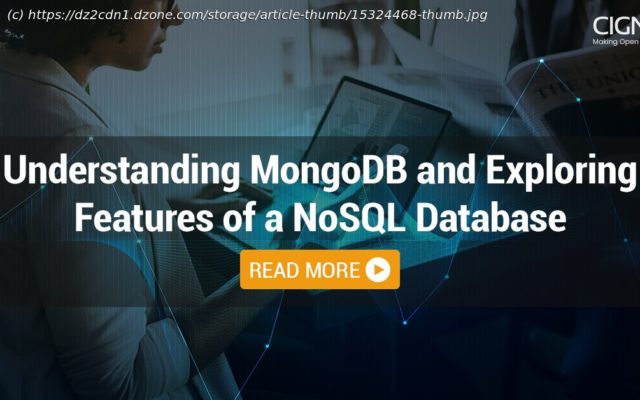MongoDB is the top choice among organizations. In this article, let’s focus more on the features and advantages of MongoDB and understanding it as a database.
Join the DZone community and get the full member experience. NoSQL data sets arose in the latter part of the 2000s as the expense of storage drastically diminished. The days of expecting to create a complicated, hard to-oversee data model to avoid data replication were long gone and the primary expense of programming and development was now focused on the developers themselves, and hence NoSQL databases were brought into the picture to enhance their productivity. As storage costs quickly diminished, the measure of data that applications expected to store increased, and the query expanded as well. This data was received in all shapes and sizes — organized, semi-organized, and polymorphic — and characterizing the schema ahead of time turned out to be almost incomprehensible. NoSQL databases permitted the developers to store colossal measures of unstructured data, providing them with a ton of flexibility. Soon, cloud computing arose in popularity, and developers began to utilize public clouds to host their applications as well as data. In order to make their applications strong, to scale out, and to astutely geo-place their data, they worked towards accessing the ability to distribute data across manifold servers and regions. MongoDB was one such NoSQL database that provided these capabilities. NoSQL Explained Alternatively known as «not only SQL», NoSQL databases store data uniquely in contrast to relational tables as they are non-tabular databases. They arrive in an assortment of types depending on their data model and consist of the main types such as document, key-value, wide-column, and graph. They furnish adaptable schemas and scale effectively with a huge amount of data and high user loads. At the point when individuals utilize the expression “NoSQL database,” they normally use it to allude to any non-relational database. Schema Agnostic: NoSQL databases are adaptable and offer unique schema support whereas when it comes to SQL databases, where data is stored in a specific schema. This implies that it gives an incredible capacity of storage for structured, unstructured, or semi-structured data. As referenced above, there are various kinds of NoSQL databases accessible, and subsequently picking a fitting database dependent on application necessity is a key design choice.






